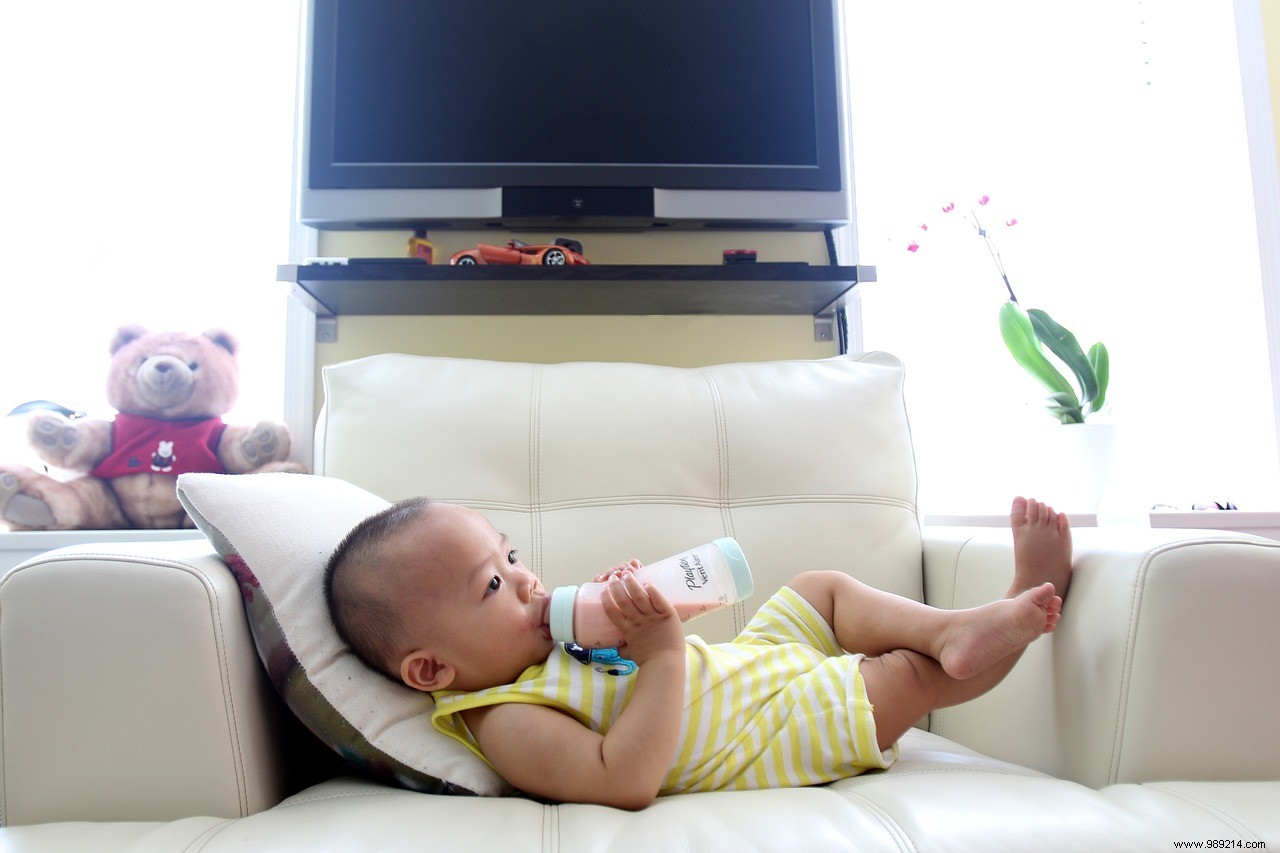Infant feeding studies typically focus on its health effects, but more and more researchers are highlighting the environmental cost of infant formula .
While some moms can't breastfeed, others can't. And this choice cannot be judged. But maybe we should reinvest in breastfeeding support services? In any case, this is the opinion of researchers who published a few days ago in the journal BMJ a paper detailing the environmental cost of formula production.
Breast milk is the most ecological food in the world. It produces no waste, no greenhouse gases and does not draw on the planet's water resources. But for powdered cow's milk, indeed, it's another story.
First you have to raise the animals. This implies a very high production of methane, a greenhouse gas 30 times more powerful than CO2. The milk must then be harvested, stored, pasteurized, dried, cooled, packaged and transported. A long and very costly process from an environmental point of view. Not to mention the fuel:researchers estimate that every kilogram of milk powder produced requires 4,700 liters of water .
By continuing to breastfeed for the first six months infant, researchers then calculated that the world could save up to 153 kilograms of CO2 per baby . Here they take the example of the United Kingdom, revealing to us that this would amount to removing between 50,000 and 77,500 cars on the roads every year.
Note also that a study carried out in 2009 revealed that 550 million boxes of infant formula end up in landfills each year. This represents approximately 86,000 tons of metal and 364,000 tons of paper.

The researchers are not addressing moms here, who are already exposed to stress and judgment, but governments. They particularly target "follow-up formula" (or 2nd age milk) deemed "useless" , even "potentially harmful" , and marketed “with messages that exploit the vulnerabilities of worried and anxious parents” .
The idea would therefore be to put in place means of fighting misinformation and improve breastfeeding support in general. The researchers also argue that there are ways to reduce the carbon emissions of milk substitutes without necessarily undermining the mother's freedom of choice.
"We need to recognize that 'our house is on fire' and we need to act very quickly to reduce the carbon footprint in all areas of life, conclude the researchers. Breastfeeding is part of this puzzle. Urgent investment is therefore needed across this sector.” .
Related articles: